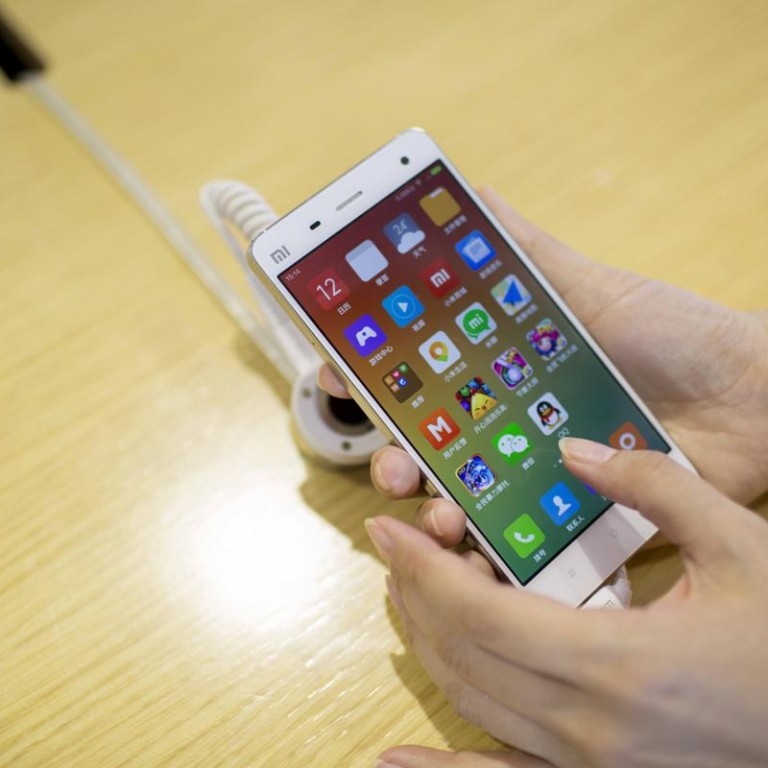
Xiaomi's appliance bet with Midea seen diluting its smartphone focus
Acquisition of stake in Midea raises questions over smartphone maker's ability to compete with cash-rich internet rivals
Smartphone maker Xiaomi has become the new big spender in China's technology sector, with a 1.27 billion yuan (HK$1.6 billion) investment in Midea Group pushing it further along an acquisition trail blazed by internet giants Baidu, Alibaba Group and Tencent Holdings.
But the deal for a 1.3 per cent stake in the appliance manufacturer, announced last weekend, has prompted a warning from industry experts that Xiaomi's priority should be to protect its product margins rather than splash cash around.
The two companies said they would cooperate on "smart" home business, e-commerce and the mobile internet. Xiaomi will send an executive director to join the board of Guangdong-headquartered Midea.
"Xiaomi has seen what it can gain from making smartphones, and wants to copy the success to other fields - home appliances is the next," said Xie Wen, an internet analyst and former Yahoo China president.
"But I wonder if it is mature timing for Xiaomi to be aggressive in acquiring a stake in another firm. With a 1 per cent stake, what will Xiaomi get from Midea?"
Mainland technology leaders have been actively carrying out mergers and acquisitions to leverage their strengths by expanding into related fields, such as applications and content.
Baidu, Alibaba and Tencent, dubbed BAT by industry observers in recognition of their clout, have invested in industries from mobile devices and operating systems to cloud computing and content providers.
"This is the trend, just as Google is also making cars," Xie said. "But Xiaomi can hardly be compared with BAT, with its hundreds of billions of yuan at hand."
Four-year-old Xiaomi, which recently became the world's third-largest smartphone maker after Samsung and Apple, was reported to be in talks to raise US$1.5 billion after closing a US$1 billion loan deal in October.
The company, headed by flamboyant chief executive Lei Jun, said it would use most of the money to expand its own TV content. It invested 1.8 billion yuan into Baidu-backed mobile video service provider iQiyi last month, following an investment in video-sharing platform Youku Tudou, for an undisclosed amount.
A disclosure by Midea on the Shenzhen stock exchange on Monday showed that Xiaomi's net profit was 347 million yuan in 2013, on revenue of 26.5 billion yuan. In contrast, Baidu reported 2013 revenue was 31.9 billion yuan and net income 10.5 billion yuan.
Liu Xingliang, chairman of Hongmai Software, a internet data analysis firm, said Xiaomi would continue with super thin profit margins for some time as it is still gathering users.
"BAT is cash-rich; Xiaomi is developing fast but it is still far from being comparable to BAT," Liu said.
Last week, Xiaomi unveiled an air purifier that can be operated by mobile phone. At 899 yuan, it is much cheaper than imported products. However, Japanese company Balmuda was quick to claim that the Xiaomi purifier is a copycat of its product.
A setback has also come in the form of the company's failure to meet its target of expanding into 10 foreign markets in 2014; it managed just five. In India, the largest of these, Xiaomi had to halt the sales of its smartphones after telecoms giant Ericsson took legal action against it due to alleged patent infringement.
"If Xiaomi doesn't pay more attention to patent issues, they will have big problems during the process of going abroad, especially in developed countries," Liu said.
Lei said Xiaomi shipped 18 million smartphones in the third quarter, an increase of 18 per cent from the previous quarter.
The company, in which Lei holds 77.8 per cent stake, has been valued by the market at US$50 billion.
Xie said the valuation of a start-up is based on the speed of its growth, not on current profit margins. "The key is whether it has strong growth momentum - investors don't care about profit for now."
